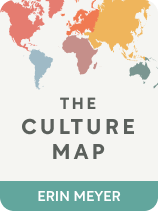

This article is an excerpt from the Shortform book guide to "The Culture Map" by Erin Meyer. Shortform has the world's best summaries and analyses of books you should be reading.
Like this article? Sign up for a free trial here .
How do different cultures build trust? What are the implications of a culture’s trust-building style for business relationships?
Different cultures build trust in different ways. Without a clear understanding of how a particular culture builds trust, you are prone to misunderstanding the nature of your relationship with your business partners. In other words, you might think that you have a more or less significant relationship than you actually do.
In this article, we’ll look at the two ways in which different cultures build trust, according to cultural communication expert Erin Meyer.
Two Styles of Trust: Cognitive and Personal
In discussing culture and trust, Erin Meyer divides cultures into two types: task-based, which we’ll call cognitive, and relationship-based, which we’ll call personal.
Business relationships in cognitive cultures are rooted in cognitive trust. Meyer describes cognitive trust as trust that develops based on behaviors. However, this also means that cognitive cultures strictly delineate their personal and professional relationships. According to Meyer, many members of cognitive cultures will actively avoid developing a personal relationship with people they work with in order to avoid conflicts of interest.
Business relationships in personal cultures are rooted in affective or personal trust. Meyer describes personal trust as trust that develops based on how you feel about the other person. In personal cultures, people build trust slowly. They don’t use icebreaker exercises, which develop only superficial trust. Instead, this type of culture values deeper, long-lasting trust.
Meyer contends that professional relationships in personal cultures don’t end the way that they do in cognitive cultures. Rather, professional relationships extend through years and through different companies.
Strategies for Building Trust in Different Cultures
In this section, we will share Meyer’s strategies for building trust in both cognitive and personal cultures.
However, most of Meyer’s strategies focus on building trust in personal cultures. Meyer has two reasons for this.
First, since today’s emerging markets (BRIC) tend to have personal cultures, Meyer thinks that learning how to build affective trust is more important for modern-day business professionals.
(Shortform note: South Africa was added to BRICS in 2010, four years prior to The Culture Map’s publication, but Meyer doesn’t mention it in her axis or her acronym. This is a pattern throughout her book: Meyer rarely describes African cultures in The Culture Map. But South Africa is also likely a personal country, as South Africans are unlikely to meet you unless you have some personal connection to them.)
Secondly, Meyer thinks that affective trust-building is a generally useful skill when working with different cultures. When you have a personal bond with someone, they are more likely to forgive and teach you about the inevitable cultural errors you make.
(Shortform note: Affective trust is also beneficial in cognitive cultures. One study whose participants were all located in the United States suggests that “in the client-project manager relationship, affective-based trust factors can supersede cognitive-based trust factors in a client’s perception of ‘good quality’ project performance.”)
How to Build Trust in Cognitive Cultures
Choose the most efficient way to communicate. Cognitive cultures tend to value efficiency over connection. So try sending an email instead of calling. If you do call, don’t be afraid to talk about your personal life—but keep it shorter than you might be used to.
(Shortform note: Even in cognitive cultures, people struggle to decide when to email and when to call. Try choosing your communication method based on how quickly you need an answer.)
Shorten your meals. Sharing a meal is a great way to bond with others. But inform your partners if the meal will last longer than 90 minutes, and try to keep it to 60. (Shortform note: Restaurants in countries where long meals are rare may kick you out after a set period. If you’ll exceed these times, consult the restaurant in advance.)
Let people go home. The fact that your colleagues don’t want to join you on a night out is normal behavior and generally not indicative of how much they respect you. If they visit you but want to return to their hotel after meetings, don’t take it personally. (Shortform note: Staying out all night with your coworkers may be good business in your culture, but other cultures may view this as unprofessional behavior. Learn and follow the norms of the country you’re working in.)
How to Build Trust in Personal Cultures
Visit. It will likely come as no surprise that it’s easiest to build trust with someone in person. If you are able, visit the people you’ll be working with. Leave room on the agenda for socializing. And when you arrive, follow the other strategies on this list to ensure it’s the most effective visit possible. Moreover, when people from different cultures come to meet you, entertain them no matter how busy you may be. Establishing a relationship now will help you avoid problems in the long run.
Look for connections. The best way to build affective trust is to find similarities between you and your business partner. If none jump out at you, pay more attention. What do they have in their office? What can you find on social media? You might need to use loose connections or do some research on your own. For example, if they love movies, watch the most popular movies in their country right now and ask for their opinion.
Let your hair down. When someone from a personal culture invites you out, this is your cue to reveal your true self. They have turned their professional selves off; it is time for you to do the same. Don’t worry about being politically incorrect, saying the wrong thing, or getting too personal. Skip the business, and just have fun.
Drink. In many cultures, drinking alcohol together is essential to forming business relationships. This is especially true of East Asian cultures, where frank communication is discouraged in the boardroom. By drinking alcohol and letting yourself go after business hours, you show that you have nothing to hide and are therefore trustworthy. But never discuss your drunken antics elsewhere. What happens at the bar stays at the bar.
Spend time on meals. Meals shared with people from personal cultures can stretch to several hours. Remember that these are essential to building trust, so resist the urge to classify them a waste of time. Meyer recommends using this opportunity to get to know your colleagues personally. And if you happen to be hosting someone from a personal culture, spend more time planning and sharing the meal than you might otherwise.
Use the phone. Emails might be efficient, but they’re not good at deepening personal relationships. Meyer suggests calling people from personal cultures, especially if you’re still in the process of establishing your personal relationship. If you’re speaking with someone new or someone you haven’t spoken to in a long time, you may need to have several phone conversations before bringing up the business matter at all.
Follow the other person’s cues. When you do call your business partner, don’t merely exchange pleasantries for five minutes before getting to the point of the conversation. While this may feel natural to you, you may offend your foreign colleague. Avoid such misunderstandings by letting your business partner direct the conversation. Meyer also recommends using a similar strategy in your emails by imitating the structure of the emails you receive. For example, if they always write a long paragraph asking about your health, add one to the emails you send too.
Utilize your network. According to Meyer, cold calling and emailing tend to be ineffective strategies in personal cultures. If you need to speak to someone you don’t know from a personal culture, go through your network. You are far more likely to receive a response if you can find a mutual connection to introduce you. This strategy is especially effective in Arab cultures.

———End of Preview———
Like what you just read? Read the rest of the world's best book summary and analysis of Erin Meyer's "The Culture Map" at Shortform .
Here's what you'll find in our full The Culture Map summary :
- The eight axes you can use as a framework to analyze cultural differences
- How to better relate to those of another culture to accomplish business goals
- How the Vikings have more gender equality than we see today






